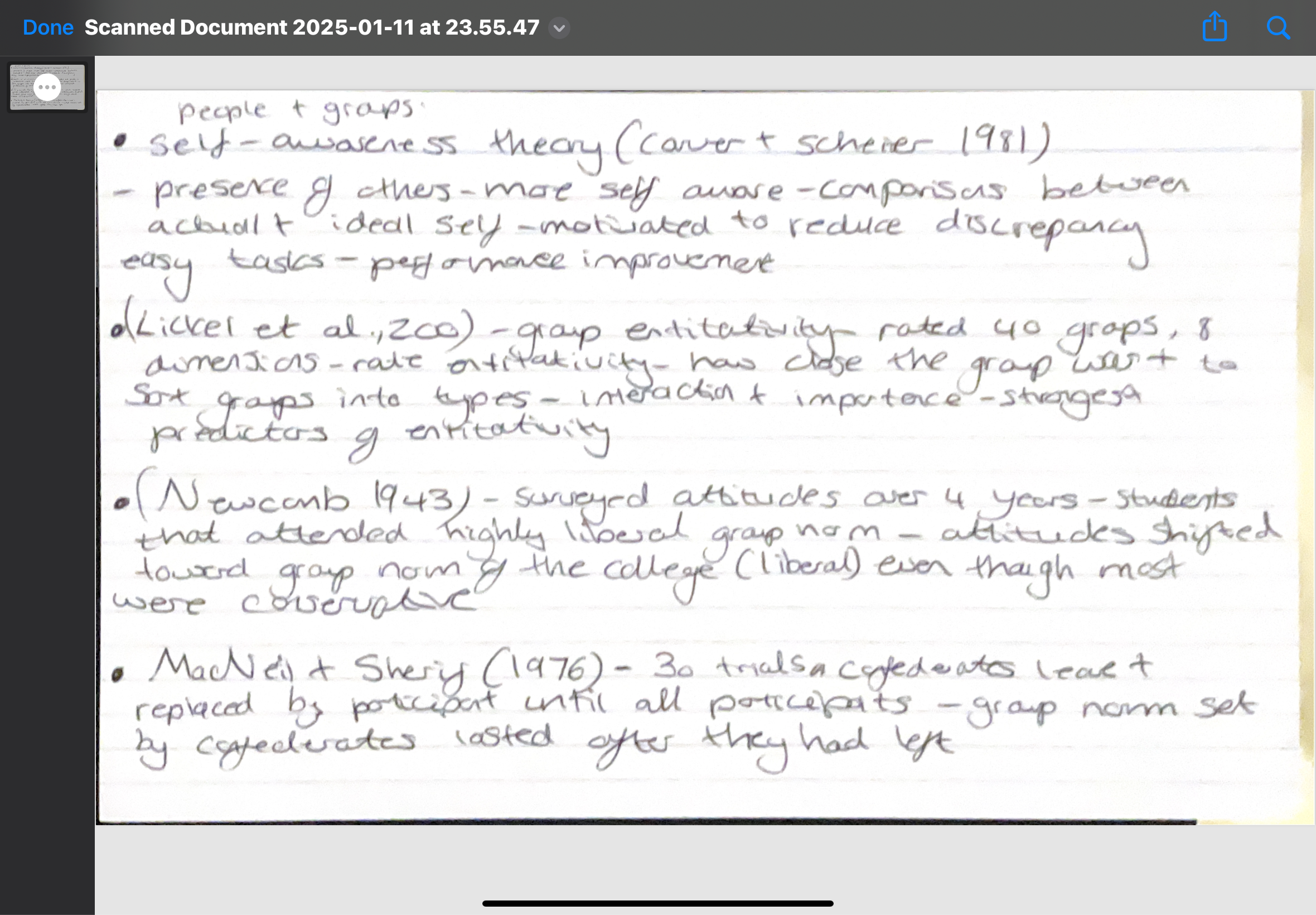What are the key ideas in self-awareness theory and related group studies according to the referenced texts?

Understand the Problem
The question is asking for a summary or clarification regarding theories and studies related to self-awareness and group dynamics, specifically referencing various studies and concepts from psychology.
Answer
Self-awareness involves assessing discrepancies between actual and ideal self, and group studies focus on entitativity and norm shifts.
Key ideas in self-awareness theory include the influence of the presence of others on self-awareness, leading to comparisons between actual and ideal self, and the motivation to reduce discrepancies to improve performance. Studies by Lickel et al. focus on group entitativity, Newcomb on attitude shifts toward group norms, and MacNeil & Sherif on group norm establishment.
Answer for screen readers
Key ideas in self-awareness theory include the influence of the presence of others on self-awareness, leading to comparisons between actual and ideal self, and the motivation to reduce discrepancies to improve performance. Studies by Lickel et al. focus on group entitativity, Newcomb on attitude shifts toward group norms, and MacNeil & Sherif on group norm establishment.
More Information
Self-awareness theory by Carver and Scheier emphasizes self-evaluation in social contexts, affecting behavior and motivation. Group studies explore how group characteristics and norms influence individual behavior and attitudes.
Tips
A common mistake in understanding self-awareness theory is neglecting the influence of social factors and group dynamics in shaping self-perceptions.
Sources
- Using Self-Awareness Theory and Skills in Psychology - positivepsychology.com
- Objective Self-Awareness - The Decision Lab - thedecisionlab.com
AI-generated content may contain errors. Please verify critical information